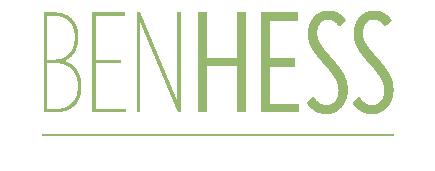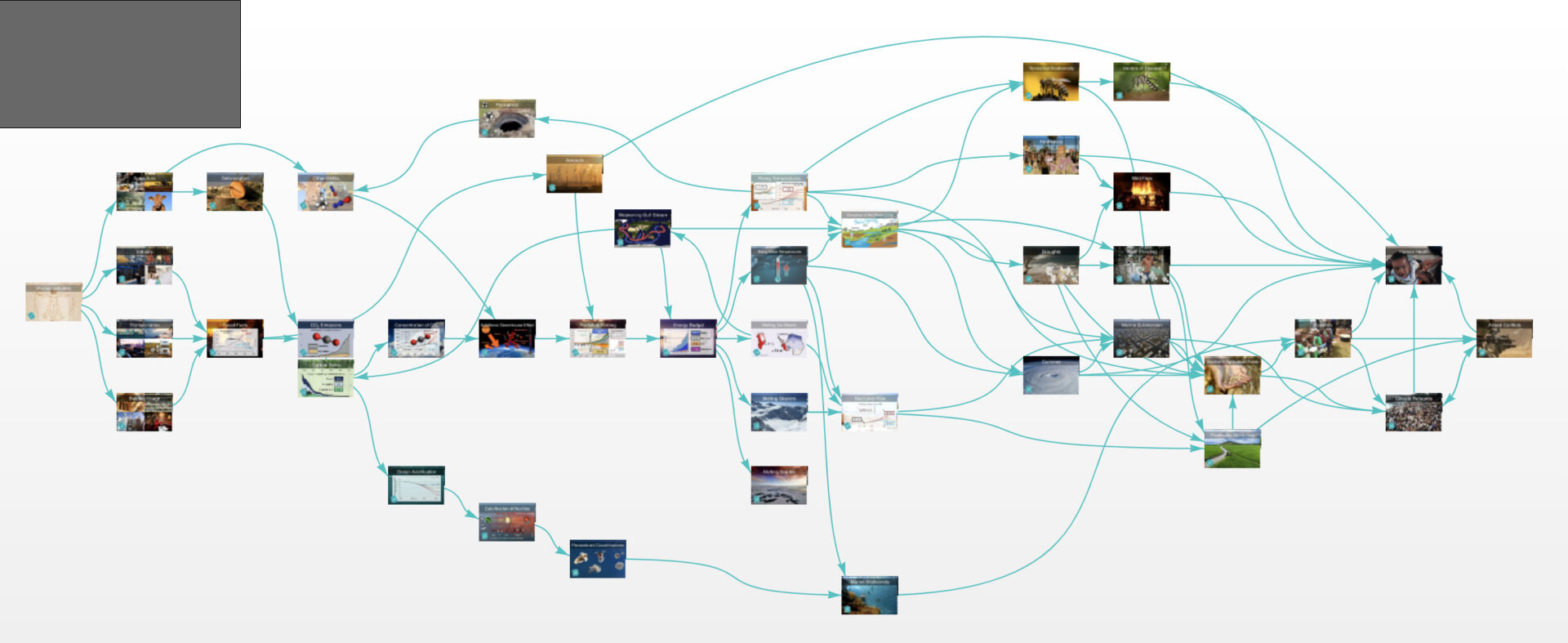A decade ago, French educator Cédric Ringenbach tried to teach colleagues and friends about climate change. However, the science behind greenhouse gas emissions and the Earth's capacity to handle increasing levels of carbon dioxide (CO2) and methane (CH4) is complex.
Ringenbach relied on the 2007 and 2014 Assessment Reports from the Intergovernmental Panel on Climate Change (IPCC) as his primary sources. Despite this, his informal 'students' often had questions about both the causes and effects of climate change, or they were simply confused.
"One day I tried a [new] format. Printing a few slides of my presentation and asking them to try and see connections between these different components of climate change. And I took a step back and I listened to the conversations," Ringenbach said at the March 2024 ChangeNOW conference. "And that's how it became the Climate Fresk."
Named after the fresco painting technique, Climate Fresk is a three-hour workshop where a facilitator presents 42 cards. Each card resembles one of Ringenbach's presentation slides, featuring a central image and a statement from the IPCC report. The facilitator distributes the cards in batches, prompting the group, typically between six and twenty people, to place the cards in order from climate cause to effect, left to right.
After the first group of cards is distributed, the facilitator encourages participants to discuss and debate their order and the related societal impacts. This process repeats with subsequent batches of cards until all 42 are on the table.
"I decided that it should be the way to teach climate change every time I do it. And I improved the workshop every time I use it. I was feeling that it was the right way to learn about it," Ringenbach explained. "Because you make mistakes, you correct yourself, you disagree, you argue, etc. and at the end, when you really understand how it works, it fixes the ideas in your in your brain."
Once all 42 cards are in their agreed-upon order, the facilitator prompts the participants to identify possible solutions to climate change across different sectors. Participants then draw arrows between the cards and the solutions, representing the interconnected nature of climate change. The result is a messy but insightful environmental fresco.
One of the many brilliant aspects of Climate Fresk is its accessibility. Participants do not need any background in climate or environmental science, and the facilitator does not need to be an expert. After a one-day Fresk training, facilitators are prepared to guide conversations, leveraging the group's collective intelligence.
Montreal-based research scientist and biologist Lori Jerome completed the Climate Fresk Facilitator training earlier this year and recently led her first in-person workshop. "The playful interactive nature of the Climate Fresk was appealing to me given the grim nature of the content," she said.
Oakland, California biologist and climate-focused scientific leader Victor Holmes also recently became a Climate Fresk facilitator. “The Fresk gives you the framework to bring climate forward without being the preacher or the lecturer. As a facilitator, you're just letting the cards do the talking and letting the group speak and explore,” Holmes said. “My concrete and measurable personal goal is to get 100 people to have a climate conversation that they would not have otherwise had.”
Jerome is also looking to expand climate conversations through Fresk. She’s planning several workshops in the coming months and sees tremendous opportunities in integrating Climate Fresk into the education system for students of various ages. "My goal is to create a safe space where participants can become better informed on climate change and work together to create solutions at the personal, community, and political level. I think that this could be a great way to build a united and resilient community."
To date, Climate Fresk workshops have engaged 1.6 million participants in 161 countries, led by 75,000 volunteers. This global expansion has enabled the translation of workshop materials, originally in French and English, into 45 languages.
Ringenbach, now CEO of Blue Choice, a Climate Fresk consultancy for management teams, is cautiously optimistic about the future. "Knowledge is the first step of change. It's got to change now. So if you want to change now, you need to first understand the topic. And then you will be able to act. ... Because when I think about it, the best ideas to save the world will come from the people who are still not aware of [climate change] today."
Visit Climate Fresk to get involved through an online or local workshop. Or you can sign up to become a facilitator and lead a Climate Fresk.

